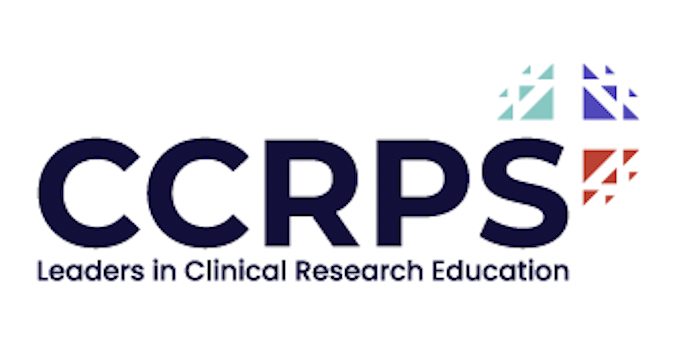Clinical Research Careers in India
Clinical Research Courses in India - US Certification
Your Fast Track to a Rewarding Career as a Clinical Research Associate (CRA) in India
The world of clinical research is booming, and India is a hotspot for exciting opportunities. If you're looking for a career that combines science, travel, and the chance to make a real difference in people's lives, then becoming a Clinical Research Associate (CRA) might be the perfect fit!
Why be a CRA in India?
Financial Security: The average salary for a CRA in India is ₹342,978, with experienced CRAs earning significantly more (Salary reference: Glassdoor https://www.glassdoor.co.in/Salaries/clinical-research-associate-salary-SRCH_KO0,27.htm). Entry-level CRAs can expect to start around ₹298,118, and experienced CRAs can reach an average of ₹696,343.
Travel Perks: CRAs often travel to different research sites, offering a chance to experience new places and cultures.
Global Impact: Your work contributes to the development of new medications and treatments, impacting lives worldwide.
Becoming a CRA in India: A Step-by-Step Guide
Education: A Bachelor of Science (B.Sc.) in a science field like biology, chemistry, or pharmacy is the minimum requirement. However, a Master's degree (M.Sc., M.Pharma, or Ph.D.) will make you a more competitive candidate.
Experience: While not always mandatory, 1-2 years of experience in research or healthcare will give you a head start. Consider internships or volunteering opportunities to gain relevant skills.
Certification: Good Clinical Practice (GCP) certification demonstrates your understanding of ethical research practices and is highly valued by employers.
Additional Tips:
Network: Attend industry events and connect with professionals on LinkedIn to learn more about the field and find potential opportunities.
Highlight Your Skills: Develop strong communication, organizational, and problem-solving skills. Attention to detail is crucial for CRAs.
Ready to Take the Next Step?
Explore our website for resources on becoming a CRA, including articles on the international job market. We can also help you find India-specific CRA training programs at competitive prices.
Clinical Research Coordinator: Interested in managing and overseeing clinical trials? Consider becoming a Clinical Research Coordinator: https://app.ccrps.org/courses/Clinical-Research-Coordinator.
Pharmacovigilance Certification: Specialize in monitoring the safety of pharmaceuticals by exploring the Pharmacovigilance Certification: https://app.ccrps.org/courses/pharmacovigilance-certification.
Clinical Research Associate (CRA): Learn to monitor clinical trials effectively and ensure compliance with regulations by becoming a Clinical Research Associate (CRA): https://app.ccrps.org/courses/cra.
ICH-GCP (International Conference on Harmonisation - Good Clinical Practice): Gain an understanding of the ethical and quality standards in clinical research through the ICH-GCP course: https://app.ccrps.org/courses/ich-gcp.
Getting Started in Clinical Trials
Clinical Trials Assistant Training: Starting your career in clinical trials? Consider the Clinical Trials Assistant Training: https://app.ccrps.org/courses/Clinical-Trials-Assistant-Training to get foundational skills.
Advanced Clinical Research Careers
Advanced Clinical Research Project Manager Certification: Aiming to lead clinical research projects? The Advanced Clinical Research Project Manager Certification: https://app.ccrps.org/courses/Advanced-Clinical-Research-Project-Manager-Certification might be the next step.
Advanced Principal Investigator Physician Certification: Aspire to lead clinical trials? Consider obtaining the Advanced Principal Investigator Physician Certification: https://app.ccrps.org/courses/Advanced-Principal-Investigator-Physician-Certification.
Medical Monitor Certification: Specialize in monitoring the medical aspects of clinical trials with the Medical Monitor Certification: https://app.ccrps.org/courses/medial-monitor-certification.
Email us for more information on finding the perfect program to launch your exciting career in Clinical Research!
5 Tips and Tricks to Working from Home in Clinical Research During a Pandemic…or remotely
The COVID-19 crisis has created a new normal in the workplace. Many companies have required their employees to work remotely as much as possible, and the clinical research field is no different. In this unprecedented time, the FDA has encouraged the use of technology, telehealth, and remote drug deliveries for conducting clinical trials. For many clinical research professionals, the shift to remote work can be challenging and difficult to navigate. However, experts believe that virtual clinical trials are going to be a huge part of the field’s future. To effectively manage these trials, consider the Advanced Clinical Research Project Manager Certification. This article has compiled some of the best tips and tricks to help you plan a productive and fulfilling workday at home.
Check Out Company Guidelines
Working in a pandemic is a special circumstance that deserves special considerations from employers. What a lot of people forget is that most companies have created HR guidelines for employees working during a time of crisis. Reviewing these guidelines can help you understand your company’s remote work policies, as well as procedures and expectations. For those looking to further understand and comply with regulatory standards, consider exploring the ICH-GCP course to deepen your knowledge on international guidelines. Additionally, the role of Pharmacovigilance Certification is crucial in ensuring drug safety, which is paramount during such trials.
Enhancing Team Coordination
Effective communication is key in remote work settings, especially when coordinating clinical trials. Clinical Trials Assistants play a vital role in this, and gaining specialized skills through the Clinical Trials Assistant Training can enhance your ability to manage projects efficiently. For Clinical Research Associates (CRAs), who ensure the smooth execution of these trials, the CRA certification can provide the necessary training to adapt to the evolving landscape.
Special Roles in Clinical Research
For advanced positions such as Medical Monitors and Principal Investigators, specific certifications like the Medical Monitor Certification and the Advanced Principal Investigator Physician Certification are essential. These certifications prepare you for high-level oversight and critical decision-making roles necessary for the success of remote clinical trials.
Set physical and social boundaries
One of the chief complaints of working from home is being unable to focus. It is easy to get distracted when you are a few steps from the TV, or you are sharing the space with other people. To have a distraction-free workday, it is important to create a designated workspace that you feel comfortable working in. This way, as soon as you enter the room, your brain is ready to concentrate on the right thing.
In addition, although it is important to socialize, set boundaries with those around you to make sure that you leave the socializing to after work is over.
Get into a Routine
Even though you are working from home, it can be very helpful to a structured schedule. When creating a work routine, it is not only important to determine when you should start working, it is also important to determine when you should stop. This helps prevent burnout and allows you to focus on other important things in your life.
Get the Right Tech
When you’re in clinical research, having reliable technology is vital to many positions. For example, it is important that your computer can run the programs and softwares you need for your job. Otherwise, you might have to consider getting an upgrade before going remote. Additionally, it is important that you understand how to use virtual communication programs like Zoom, so you can connect regularly and effectively with your boss and colleagues.
Over Communicate
Out of all of the tips discussed in the article, this one is the one that most experts agree on. As you begin working remotely, you will notice very quickly that it is harder and more important than ever to connect with your colleagues and managers. It is not only helpful to update your colleagues and bosses more frequently, it is also important to keep up social habits you had before the pandemic. If you always talked to a particular colleague before the weekly meeting, try giving them a call before the same virtual meeting. This way, you’ll be able to maintain your old routine and keep up with your office even when you’re working from home.
Since the pandemic has drastically changed the way we work, here are some new ways to elevate your workday at home. As discussed in our other article, clinical research is developing a new perspective that generates new opportunities and to change the field. Virtual clinical trials (VCTs) are going to stay in the field, and the technical and self knowledge you gain working during this time will serve you well in future clinical research projects. If you want to learn more about the clinical research profession, please check out our specialized training programs and articles below to learn more about the clinical research job scene.
Learn more Work From Home Tips by Katie Holmes













